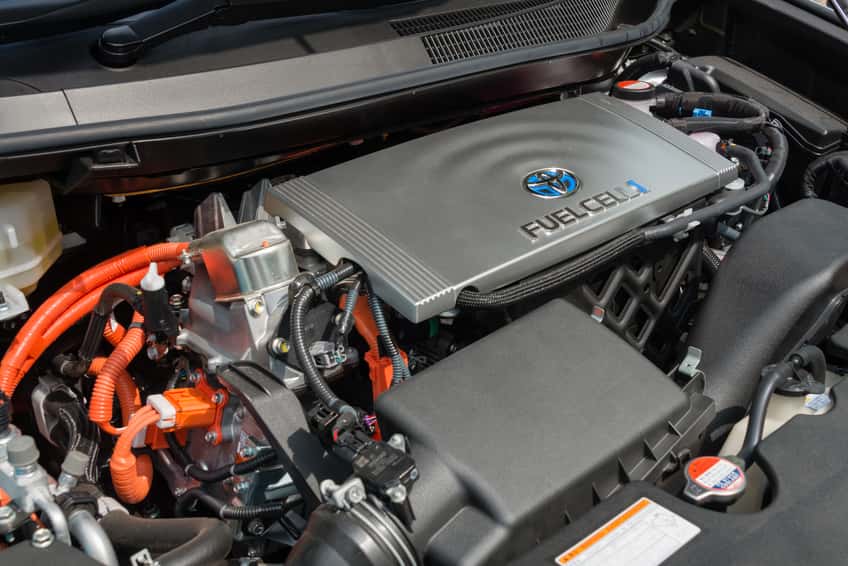Toyota Motor Corp., Nissan Motor Co. Ltd., Honda Motor Co. Ltd., JXTG Nippon Oil & Energy, Idemitsu Kosan Co. Ltd., Iwatani Corp., Tokyo Gas Co. Ltd., Toho Gas Co. Ltd., Air Liquide Japan Ltd., Toyota Tsusho Corp., and Development Bank of Japan Inc. have signed a memorandum of understanding (MOU) to collaborate on the large-scale construction of hydrogen stations for fuel cell vehicles (FCVs).
According to Toyota, the MOU is aimed at achieving the acceleration of the construction of hydrogen stations in the current early stage of FCV commercialization using an “all Japan” approach centered on collaboration among the 11 companies.
As reported, it stems from the Japanese government’s “Strategic Roadmap for Hydrogen and Fuel Cells,” which targets a total of 160 operational hydrogen stations and 40,000 in-use FCVs by fiscal year 2020.
Recognizing the challenges facing the hydrogen station business in early-stage commercialization of FCVs, the MOU is based on the idea that the companies concerned should cooperate and fulfill their respective roles to achieve the strategic development of hydrogen stations for maximizing FCV demand and to contribute to the steady popularization of FCVs.
As a specific form of such cooperation, the 11 companies will consider establishing a new company within 2017. The new company would aim to do the following: 1) achieve steady construction of hydrogen stations by implementing measures to support hydrogen station construction and operation, and 2) achieve wider use of FCVs and the independence of the hydrogen station business through activities for reducing costs, including governmental review of regulations, and activities for improving operational efficiencies, thus contributing to the realization of a hydrogen society.
The 11 companies will consider ways for broad participation by other companies in the future, Toyota notes.






